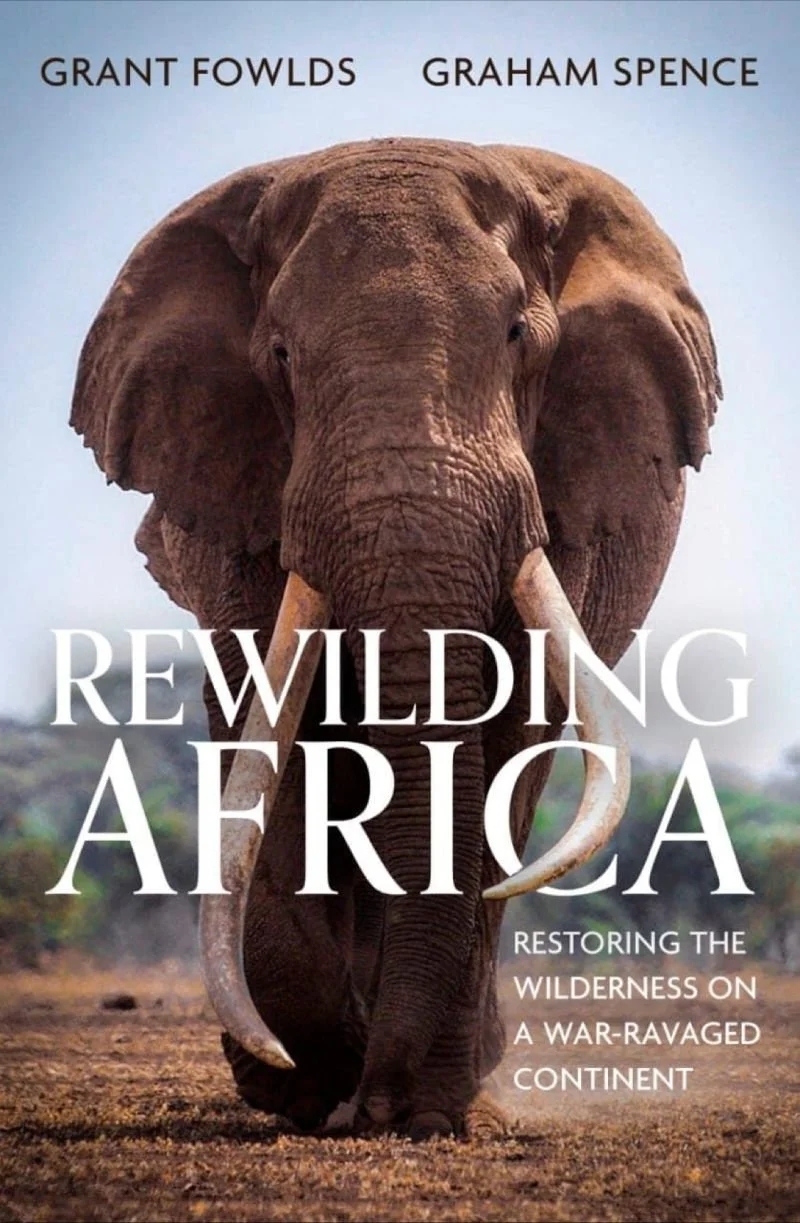"Rewilding Africa: Restoring the Wilderness on a War-Ravaged Continent" is a compelling and eye-opening account of Grant Fowlds' tireless efforts to save and protect Africa's rhinos, elephants, and other iconic wildlife, as well as the vital habitats that sustain them. Through vivid storytelling, Fowlds takes readers on a journey through some of Africa's most war-torn regions, such as Angola, Mozambique, and the Democratic Republic of the Congo, where conservation efforts face unique challenges amidst decades of conflict.
The book opens with a tragic incident in which a fellow conservationist loses his life while trying to save elephants. This serves as a stark reminder of the risks and dangers that conservationists face in their mission to protect wildlife. Fowlds also delves into the intense face-off with poachers, revealing the struggles of impoverished rural communities exploited by unscrupulous local businessmen.
The impact of the Covid pandemic on conservation efforts takes center stage in the narrative. Fowlds highlights the disruption of vital wildlife tourism that sustains both wildlife and rural communities. While lockdowns brought a temporary lull in poaching, they also brought tourism to a standstill, posing new challenges for conservationists.
The pandemic has also shed light on the illicit trade in endangered wildlife, with some species sold in 'wet markets,' leading to the incubation and spread of dangerous pathogens. This revelation underscores the importance of conservation efforts in preserving not just wildlife but also public health and the global ecosystem.
One of the standout restoration projects Fowlds describes involves ex-South African soldiers seeking to make amends for their involvement in Angola's civil war, which had catastrophic consequences for the country's wildlife. This project serves as a hopeful example of how people can turn their past actions around to benefit conservation efforts.
Throughout the book, Fowlds emphasizes the critical role that funding plays in conservation initiatives. He highlights the experiences of both generous and disappointing donors, underscoring the need for sustained and genuine support for conservation projects.
The narrative also explores the delicate balance that must be struck between wildlife conservation and coexistence with rural communities. Fowlds recounts fraught negotiations aimed at finding ways for wildlife and local populations to share the land harmoniously.
One of the book's central themes revolves around the restoration of Africa's once vast herds of elephants, particularly the 'tuskers' with their remarkable tusks. This undertaking is crucial in enabling Africa's iconic wildlife to thrive and preserving the continent's wilderness, which is essential for both wildlife and human survival.
A heartening segment in the book focuses on Mozambique, where years of war have scarred the country, yet conservation efforts are beginning to show promising results. However, new challenges arise with the emergence of an ISIS insurgency in the north.
As the book comes to a close, Fowlds prompts readers to contemplate humanity's relationship with nature post-pandemic. He raises important questions about whether we will learn the vital lesson of preserving iconic wildlife and their habitats, understanding that doing so is essential not only for the survival of wildlife but also for our own survival on our precious planet.
"Rewilding Africa" is an emotionally charged and thought-provoking narrative that sheds light on the heroic efforts of conservationists like Grant Fowlds and their unwavering dedication to protecting Africa's natural heritage. It serves as both a call to action and an inspiration for readers to engage in conservation efforts and safeguard the planet for future generations.

